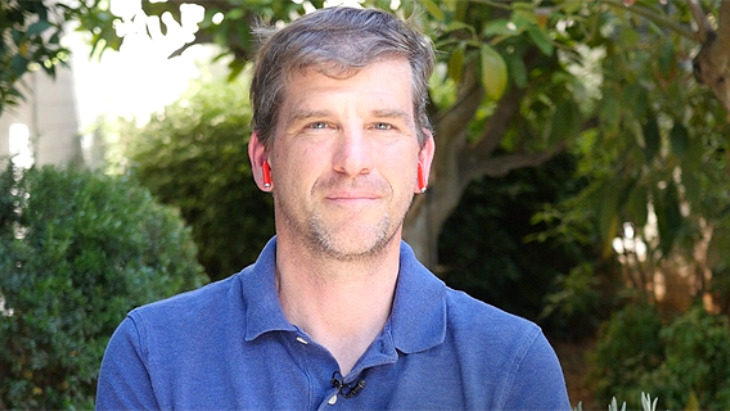 Vampire Weekend's Surprising Jewish Stories
Vampire Weekend's Surprising Jewish Stories


6 min read
The characters are entrepreneurs and innovators, industrialists struggling to adapt to modernity and negotiators seeking to preserve their identities.
The world is undergoing massive transformation. Innovative technology and digitization are disrupting traditional industries. Populations are shifting. Wealth is abundant; tech innovation is rapid. We have trust issues, new currencies, and political divisions. Big Tech’s power is unprecedented. Developments in AI, Big Data, Machine Learning are happening too fast for our moral and legal regulations to keep up.
How can we build a time-honored framework to guide our innovation in these turbulent times? What can Judaism teach us about tech, wealth, regulation, negotiation, and other modern, consequential topics?
Humanity has actually faced all these “modern” challenges before. The characters of the Book of Genesis are just like us. They are entrepreneurs and innovators, industrialists struggling to adapt to modernity and negotiators seeking to preserve their identities.
Here is a lesson from each Torah portion from the Book of Genesis, based on my new book, The Tree of Life and Prosperity: 21st Century Business Principles from the Book of Genesis.
There are no children in the Garden of Eden. In the Garden of Eden, all of Adam’s and Eve’s needs are met without any labor. The Garden was a failure. Ergo, we don’t just need to work in order to live, earn a wage. We work in order to be productive people striving to create a better world for us and our children.
Noah’s invention of the plow ushered in human flourishing on the one hand, and moral corruption on the other. After the flood, Noah’s amazing invention of wine – the water of the ancients – and fermentation also leads to licentiousness. Innovation moves the world forward and necessarily so. However, if it is not undergirded and supported by timeless principles, it can lead to destruction or corruption of values.
The patriarchs were wealthy people and Nachmanides even says this is inherent in their blessing. The Bible challenges us to use wealth properly, take care of the orphan and widow and use our capital to espouse timeless values.
 Michael Eisenberg
Michael Eisenberg
Here we see two models for society: one within Sodom based on corruption, greed and xenophobia, which strives to accumulate wealth for its own sake. In contrast, Abraham's society is built on shared interest, mutual responsibility, hospitality, and concern for the weak. Societies are built on values. It is the responsibility of each one of us to create and spread ones that we care about.
Abraham’s adroit negotiation with the Hittites to purchase the Cave of the Machpelah in order to bury his wife Sarah revolved not only around financial issues, but also on moral, ethical and religious axes. Staying true to our principles and core values can help us optimize negotiation success. People respect those who respect themselves and stand up for their values.
Isaac spurred an agricultural revolution, settling down and striking roots. Esau, a hunter and nomad, wasn’t able or willing to adapt to the new economy. Now we are going through a digital transformation. Many traditional jobs are being replaced or changed fundamentally. During turbulent times, it is critical that we adapt accordingly, while staying true to our identities.
After fleeing Esau at the behest of his mother Rebecca, Jacob meets Rachel at the edge of the well in Paddan-Aram. Covering the well is a stone – a form of technological, social and legal protection against a potential “tragedy of the commons,” whereby certain shepherds might take advantage of the public good. Jacob removes the stone and waters the flock of Laban.
“Our distrust is very expensive,” said Ralph Waldo Emerson. So too here, we see the importance of interpersonal trust and the price that is paid in its absence. Families, communities and societies that are undergirded by trust are more efficient and effective.
Arriving in Shechem, Jacob seeks to build a foundation of mutual economic cooperation and trust by purchasing fields from the local population and cultivating good will. After the prince rapes his daughter Dina, Simeon and Levi betray their father’s worldview by manipulating the locals and killing them. Jacob wanted to build a society predicated on trust and love, but his sons chose fear as a governing principle. We can learn from this incident that trust is more effective, but many people capitulate to fear.
Joseph envisions agricultural innovation to support the growing family and provide sustenance all year long. His brothers became envious and spiteful, unwilling to adapt to the changing times, stuck in their old ways. Joseph’s entrepreneurial mindset results in backlash and jealousy from his brothers. So too in every generation, changemakers and black sheep are called out. But these visionaries are often the ones who change humanity.
Perhaps we ought to believe in them a bit more. Former Canadian spy and current self-improvement specialist Shane Parrish recently wrote, “When everyone agrees with you when you make a decision, you get paid linearly. When everyone agrees with you after the fact, you get paid exponentially.” Joseph got paid exponentially.
Joseph interprets Pharaoh's dream to mean that Egypt would experience seven years of plenty followed by seven years of famine. Joseph then rehauls the Egyptian economy – to focus on commerce and trade, while building urban grain storage, local distribution centers, and other infrastructure. His planning and foresight saved the country during the famine. So too in life, proper preparedness for crises and innovation are key to overcoming challenges.
This Torah portion is a cautionary tale about the complexity of systems and the unseen negative impacts of too much government intervention. Joseph saved the Egyptian economy from catastrophic famine and the threat of external enemies. But then he over-centralized and significantly raised the level of vulnerability to the unseen risks that had accumulated within the system. It behooves us to be wary of solutions that purport to solve all the issues at hand. The natural world does well in many ways, and sometimes we should stand back and let the world turn.
Both entrepreneurs and managers are critical in any enterprise. You need people to imagine the future and executers to create and manage successful companies. Jacob prepares Israel’s export economy for this in the partnership between Issachar and Zebulun.
Click here to listen to a thought-provoking discussion with Michael Eisenberg on the first segment of Aish's Good with Money podcast.
